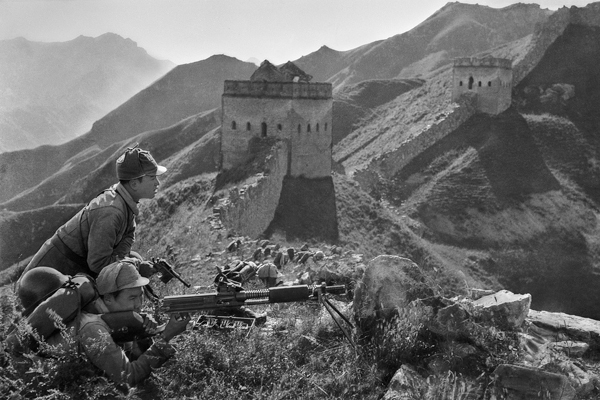 |
|
Sha also focused on battle scenes, like soldiers on the Great Wall in 1937 during the War of Resistance Against Japanese Aggression (1931-45). [Photo provided to China Daily] |
Sha later moved to Shanghai, where he met Lu Xun (1881-1936), the writer whom he photographed.
The exhibition features two photos, in which Lu Xun is with young artists at a national woodcut exhibition.
The writer avidly promoted wood engraving as a way to spread revolutionary ideas.
There is also one of his last portraits by Sha at the show.
Speaking about that picture, Sha had said that he rushed to Lu Xun's home after hearing about his death, and took the photo in great grief.
After Sha was executed, people found on his body a box in which there were the negatives of the Lu Xun pictures, according to Yang Xiaoyan, a professor of Guangzhou-based Sun Yat-sen University.
For Sha, Canadian physician and communist Norman Bethune (1890-1939) was another iconic face.
The two met when they both served in the Jinchaji revolutionary area.